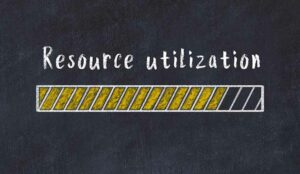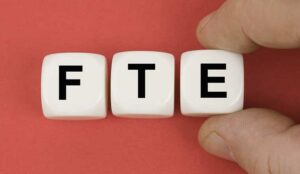Knowing how much time an advisor is either assisting or available to assist with customer activity, can be an important metric to monitor. But how can contact centres and BPOs calculate their utilization rate?
Marianne asked our Community of industry professionals about this:
I’m pretty positive that my client’s utilisation target is insane, but I need a mathematical formula to show her so. Can you please help?
The facts:
- We do technical support for them, our AHT is 12 minutes (client wants it to be 10 minutes)
- We need a <10% abandon rate (SL threshold is not really a concern, use 3 minutes as an idea).
- The client is looking for an 85% utilisation and
- 15% non-utilised includes 40 minutes of allowed breaks (2*15 minute scheduled breaks, 1*10 minute bathroom)
Utilisation per hour is basically Handle time/sign on time.
Basic maths shows this to be improbable since it only allows 32 minutes of waiting for calls… but can anyone provide me with the Utilisation % Erlang calculation?
I can find the number of Agents vs. Service Level calculation, but I’m not seeing utilisation.
Use this Formula to Calculate Utilisation
Utilisation (% of time an agent is occupied with any productive or billable activities) is calculated as follows:
Utilisation (%) = (Total logged-in time / Total Shift time) x 100
You can also use this utilisation formula
Utilisation (%) = (Total Talk Time + Total Hold Time + Total Wrap + Available Hours) / Paid Hours
This is the only acceptable formula as per COPC, which is a quality standard like ISO 9001 etc, but is meant for BPO/Call centres only. You may get more details about them on their website
With thanks to Ravi
Utilisation Can Impact Attrition So Be Careful
Not withstanding the general technical problems, you’re going to have a HUGE attrition rate.
Long term running at anything over 70 is asking for problems.
Trying to push the AHT from 720 > 600 is going to drive it up even more!
Given the long AHT it implies a fairly high level of technical knowledge to be able to deal with a call, not just direct enquiries etc…
Consider the fact that the recruitment and training costs are going to go through the roof.
With thanks to Dave
The Utilization Calculation in Practice
32 mins of available time as part of the time that an agent spends on the phones (8 hours minus 40 mins breaks) equates to availability of 7% (32/(8*60-40)).
Using this as an upper threshold and the AHT of 12 minutes and a wide assumption on service level to match your abandonment rate, you’d need to be receiving over 11,000 calls per week in order to reach a 93% occupancy rate (inverse of availability).
So your argument could be that you don’t receive enough calls to drive that type of efficiency.
Given the info you’ve provided I guess you handle about 4,000 calls at the minute and have 40-odd FTE?
Also the 10% abandonment rate and the AHT are linked. A high abandonment rate target will encourage calls to queue, which will mean that it is much more likely that an agent will get a call straight after answering another.
Agents really can only work comfortably up to an occupancy of around 85%. Trying to get them to be more efficient generally has two impacts – longer AHT’s, reduced on phone time.
Agents will naturally do this whenever they feel under pressure to give themselves a break from handling one call after another. Try looking at the AHT when the agents aren’t under pressure, when availability is is around the 15% – 25% mark and see if it is lower.
With thanks to Eamon
Draw a Time Utilisation Diagram
The client argument could be that you are overstaffed, based on the above.
I would draw a Time Utilisation Diagram for this particular client, whilst you can have varied opinions these are meaningless when confronted with mathematical facts.
With thanks to Steve
Don’t Confuse Utilisation With Occupancy
Some industry professionals still use the terms utilisation and occupancy interchangeably, but they are wrong to do so as they are two separate metrics.
While utilisation considers an advisor’s total time in the contact centre, including internal shrinkage considerations, occupancy only considers the time when advisors are active on the contact centre floor.
If you want to find out more, read this article: What Is the Difference Between Occupancy and Utilisation?
You can also watch this video to learn more about the differences between occupancy and utilization, and also some tips on how contact centres can optimize them:
With thanks to Jonty
This article was made possible due to the great community of experts we have at Call Centre Helper, to get involved just join our LinkedIn Community and and if you aren’t already make sure you are following us on LinkedIn to see our latest content.
You may also find these articles helpful to read next:
- What Is the Difference Between Occupancy and Utilisation?
- How to Calculate Utilisation
- How to Calculate ‘Not Ready’ Rate
Author: Jonty Pearce
Reviewed by: Megan Jones
Published On: 12th Apr 2022 - Last modified: 26th Jul 2024
Read more about - Call Centre Questions, Peopleware, Ray Agar, Utilisation


































